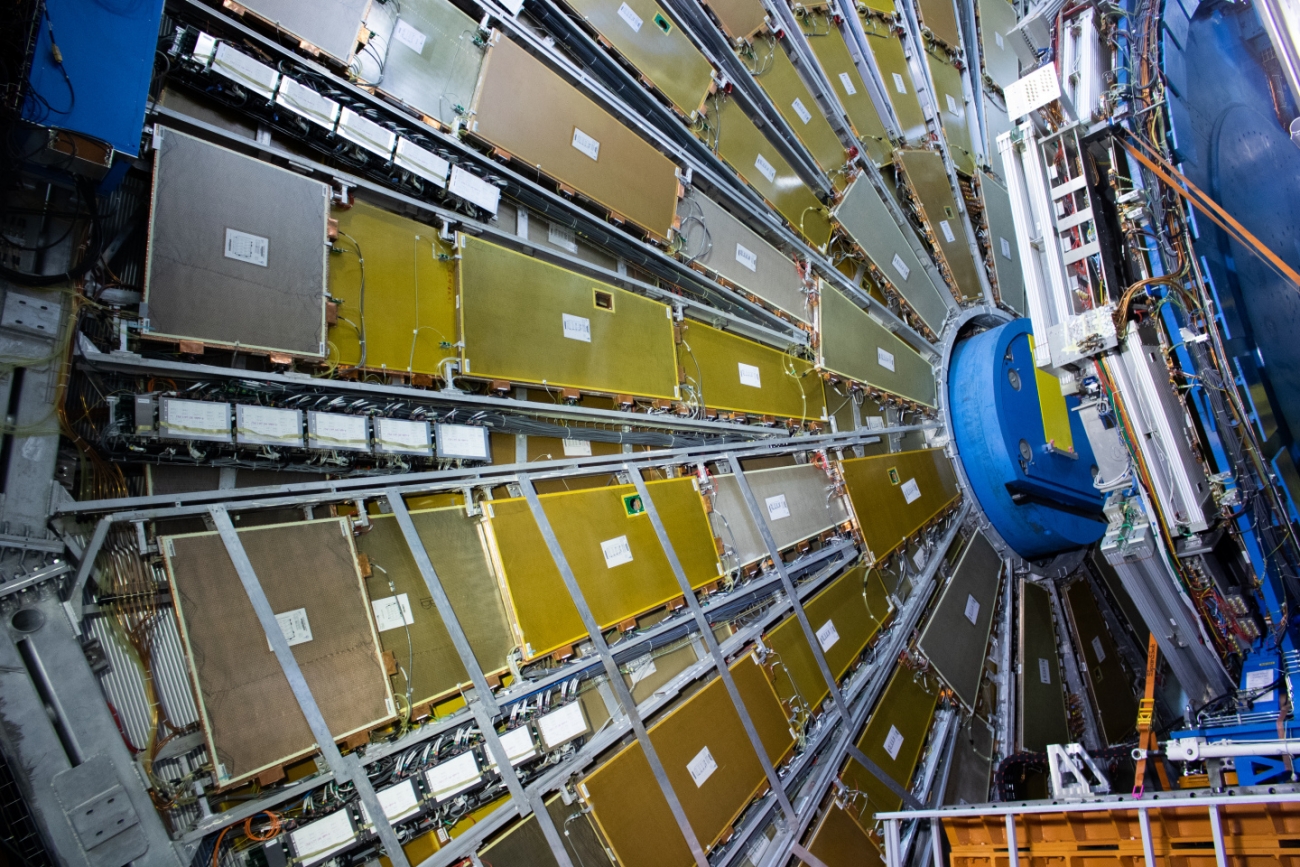ATLAS experiment revamps activities

ATLAS entered the COVID-19 lock down on the 17th of March 2020; the closing of the activities was very fast and efficient. During the lock down, still many activities were performed remotely, among them the development of the firmware for two of the major Phase-I upgrade projects: the New Small Wheel trigger, and the Liquid Argon Calorimeter trigger electronics.
From the 4th of May, a few pilot activities were prepared for the re-start, including a few items in the New Small Wheel and a short intervention to allow progress in the commissioning of the Near Stations of the AFP detector that were installed just before the lock down.

In the meantime, the ATLAS safety team defined the procedures for the delivery of personal protective equipment (PPEs) and started to analyse the COVID-19 associated risks for all of the activities that were due to start on the 18th of May. Since after the 18th of May, the number of people allowed into CERN was limited, ATLAS identified a few high priority tasks to be performed. The Liquid Argon renewal of the front-end electronics started quite efficiently; refurbished front-end boards were installed in two crates and two other crates had their backplanes exchanged and are now ready to be filled with upgraded boards. The New Small Wheel activities also started in several CERN locations (buildings 180, 191 and BB5). Good progress has been achieved both on the MicroMegas and on the sTGC integration aiming to have by mid July three additional double wedges installed on the A-side New Small Wheel.
As the number of people at CERN is increasing, also more activities are re-starting, including both the maintenance work on the present detector and high priority Phase-II activities. Work has re-started on the qualification of the new power supplies of for the SCT tracking detector, on the maintenance of the Tile calorimeter and on the preparation for the installation of new muon chambers in the muon barrel toroid region, as well as on the TDAQ upgrade and maintenance. Within the Phase-II program, activities have started on the ITk (the new all-silicon tracker) and on the Tile calorimeter upgrade. It is also noteworthy that the so called Milestone-1 (M1) week (the first week of re-commissioning of the full detector) has already taken place, fully remotely at the end of May.
The COVID-19 precautions and the use of PPEs have certainly a relevant impact on the efficiency of the work, but still we see that all the teams are very eager to come back to work and are adapting well to the new working situation.
